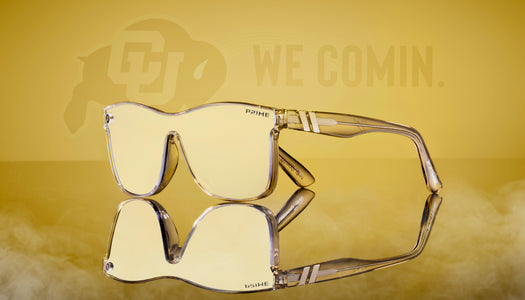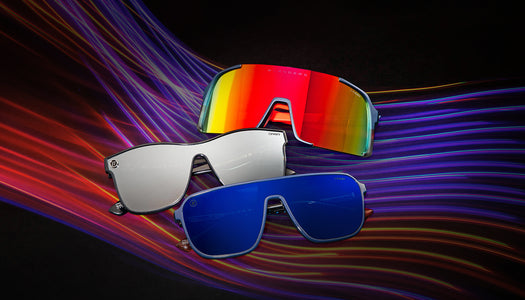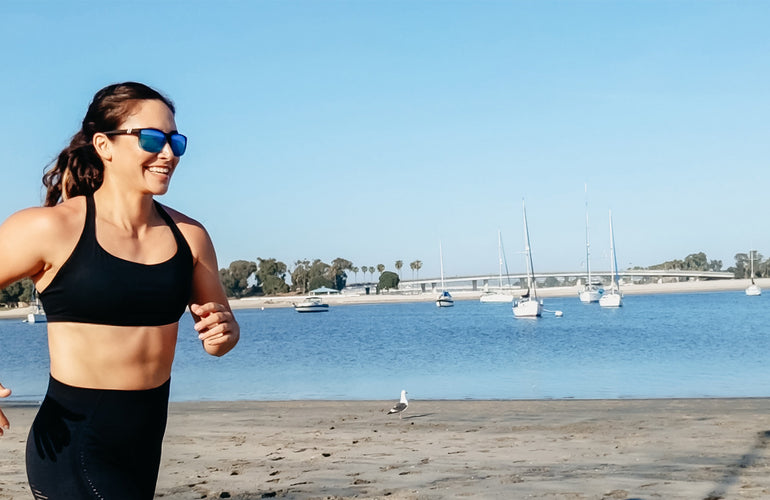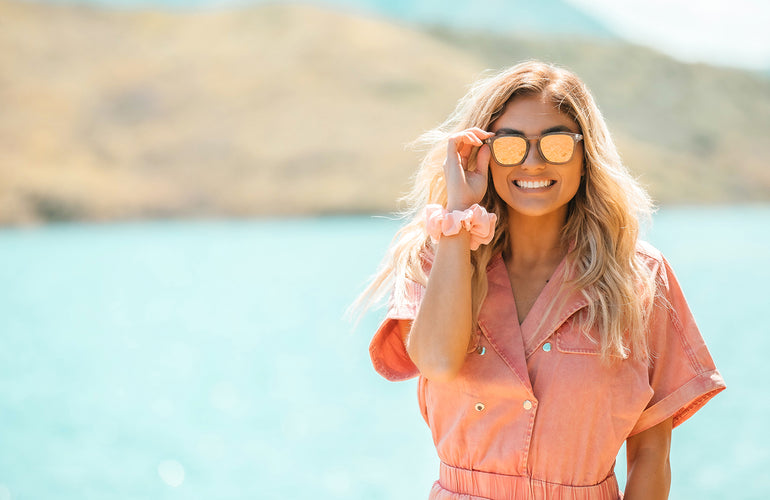Should I Wear Sunglasses While Running?
Don’t leave home without sunglasses for running—or anytime you’re outdoors. Heading outside once in a while without your sunnies isn’t the worst thing for your health, but if it becomes a regular habit, it could mean trouble for your precious eyes. Those slick shades are much more than a fashion statement: They protect against the sun’s harmful rays, says Healthination, a leading provider of engaging, informative content on healthy living (and a division of GoodRx in Santa Monica, CA).

Too much sun exposure can cause short- and long-term eye damage. This is especially true during the summer months, when the levels of UVA and UVB rays are three times higher. Without sunglasses, the sun’s rays can cause a number of conditions:
Eye sunburn. Also known as photokeratitis or snow blindness, eye sunburn can cause burning, tearing, redness and blurry vision. Eye sunburn is often caused by reflections from water, sand, ice or snow, or staring at the sun or watching a solar eclipse without using special eye protection. It can also be caused by man-made devices, such as tanning beds. Eye sunburn usually goes away on its own, so treatment is often focused on helping your eyes feel better.
Cataracts. Too much sun exposure can cause cataracts—a condition in which the eyes’ lenses become cloudy (reminiscent of looking through smudged glasses or a dusty windshield). Other symptoms include seeing double, light sensitivity, trouble seeing at night and seeing colors that are less vivid. Treatment for cataracts may include prescription eyewear or even surgery (if it’s significantly affecting quality of life).
Macular degeneration. Stemming from damage to part of the retina (the macula), macular degeneration stands out as the leading cause of blindness in the United States. It causes loss of central vision—meaning an inability to see fine details, while peripheral vision stays normal. Most cases are age-related, but too much sun exposure to the eyes can increase the risk. There’s no cure, but some treatments—like taking vitamins or medication, or surgery—may help slow the progression of the condition or even improve vision.
Pterygium. Also called “surfer’s eye,” pterygium is a painless growth of tissue on the eyeball that can affect its shape. This can cause an astigmatism, which in turn can blur vision.
The Importance of Eye Protection While Running Outside
While sharpening runners’ vision and keeping them from squinting in the bright sun, sunglasses can protect eyes from harmful UV rays—which are dangerous even under cloudy skies, says Verywell Fit, an online resource for credible, up-to-date advice on exercise-related topics (and a division of DotDash, Inc., in New York). In addition, sunglasses shield runners’ eyes from debris, insects, wind, rain and other irritants.
What are the Best Women’s Sunglass Styles For Running?
In order to keep you in forward motion, we have a plethora of women’s sunglasses for running. There are several key components we go off of when deciding which rad pairs work best.
Coating
Choose styles with 100% protection from harmful UVA and UVB rays. Polarized lenses help reduce glare and haze—making them a good choice for running near water or in bright conditions. Some higher-end running sunglasses also have anti-fog and water-and oil-resistant coatings.
Lenses
Different colored lenses can improve visibility under certain conditions; when choosing a tint, consider where and what time of day you typically run. For daily runs in bright sun or on blacktop roads, opt for an extremely dark lens. Yellow lenses work better in low-light conditions, while rose-colored lenses provide greater contrast—particularly useful for trail running. For versatility in running sunglasses, look for styles that come with or sell interchangeable lenses that can switch out based on conditions or activity.
Shape
Seek sunglasses for running that offer the best protection for your face shape and size. Wraparound sunglasses usually offer the most protection and have the widest field of vision, but other styles still offer defense against the sun, wind and debris.
Fit
Sunglasses should fit snugly without slipping, bouncing or pinching above the temples. For a secure fit, look for styles with nose pads that grip as well as temple tips.
Combining fashion with function, Blenders Eyewear offers a variety of women’s sunglasses for running. Even its mission statement—"Live Life in Forward Motion”—aptly describes sunglasses for running.



















